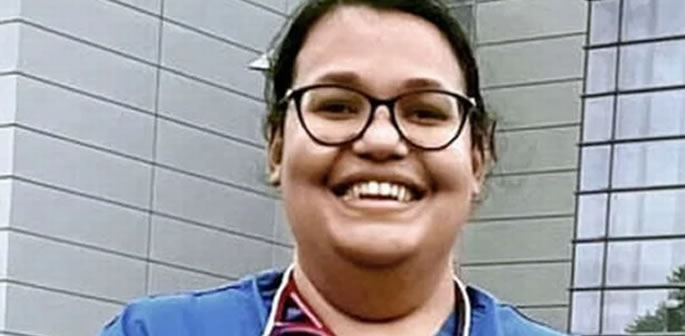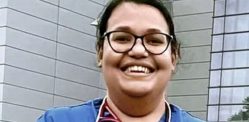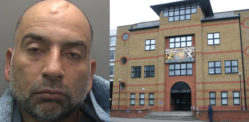"Most of the time she used to come back home and cry"
An inquest found that a doctor who felt “belittled” at work took her own life.
Much-loved Dr Vaishnavi Kumar worked at Queen Elizabeth Hospital in Birmingham.
It was heard she “struggled to cope” with work stresses and often returned home crying.
The 35-year-old, who previously told how the Covid pandemic had “taken its toll”, took a lethal cocktail of medication before waiting more than three hours to call for an ambulance. By the time she arrived at City Hospital she was critically ill.
Despite resuscitation attempts over 90 minutes and a bid to reverse the effects of the overdose, she sadly passed away, just after 7 am on June 22, 2022.
Her father Ravi Kumar, who is also a doctor, told Birmingham Coroner’s Court that her daughter felt the QE was a “hypercritical environment to work in”.
At the inquest, he said: “She used to say it was a very hypercritical place.
“They used to pick up small little things. Belittle and be a bit condescending in the way they used to behave there.
“Most of the time she used to come back home and cry a little bit.
“There was one particular incident she was mentioning, one of the consultants scoffed at her doing the handover of an acute case… In full public view, she was laughed at.
“It was very insensitive and she was really very upset at that time.”
Vaishnavi did not make any complaints about any colleague’s behaviour and “got on with her job”.
The medic hoped to finish her placement and accept a position at the Royal Stoke University Hospital.
But Dr Kumar said when she knew she was not moving to a different hospital “that is when she really started going down”.
He said: “She was struggling to cope from December 2021 onwards.
“She would say ‘I don’t want to stay at the QE anymore. I’m looking forward to going to Stoke Hospital’.”
The doctor voluntarily requested to stay at the QE, with her email request accepted and extended by the University Hospitals Birmingham NHS Foundation Trust for a further six months.
The hearing was also told she was grieving the loss of her grandfather, who died in March.
But it was heard that her career was flourishing.
Her training supervisor Dr John Ayuk told the hearing that Vaishnavi did not inform him of any work stresses which could have contributed to her suicidal state of mind, the hearing was told.
He described his “shock and sadness” at her death.
On June 22 at 4 am, paramedics were called to Vaishnavi’s home. She showed them what she had taken and said she had taken an overdose at 12:30 am.
In a statement, medic Lindsey Strudwick said:
“She had not disclosed why she called an ambulance after she had taken the overdose, so it was unknown if she had any regret of taking the overdose and wanting ambulance assistance or whether she was expecting an ambulance to be dispatched and find her deceased.”
The doctor told paramedics that she worked at the QE but said “under no circumstances would she liked to be conveyed there”.
The paramedic crew also found three typed documents which she had signed.
Birmingham and Solihull Assistant Coroner Ian Dreelan said that Vaishnavi had previously contacted a mental health service in 2019.
She self-referred again more recently “citing work stress and a recent family bereavement as contributory factors”.
Vaishnavi had undergone a telephone assessment on May 28, 2022, where her answers indicated she had “severe depression and moderately severe anxiety”.
Mr Dreelan said this led to a referral to a community mental health team but an appointment had not been arranged prior to her death.
She was on a waiting list to be seen due to resource shortages and would get an appointment if there was a cancellation.
However, this information was not passed on to her.
Mr Dreelan said: “The delay that she allowed before she telephoned for an ambulance was left to such an extent that she must have known that by the time she contacted emergency services she would be beyond saving.”
The coroner said there was a “combination of factors” which led her to want to take her own life.
He said: “There was an underlying medical condition, which was managed, but over a passage of time must have been a drain on her both psychologically and emotionally.
“Also the family bereavement she had suffered and the work stress she had experienced and mentioned to a clinician when she sought help.”
Vaishnavi was described as a “perfectionist”. The coroner said this can invite pressure onto individuals where “everything has to be perfect”.
He added: “When that isn’t the case, the perception of pressure is greater than others in their own situation.”
Mr Dreelan concluded: “Vaish intended to take her own life and she intended to do so at the time she took it.
“I will find a conclusion of suicide in this case on the balance of probabilities and from the evidence I have heard.”






























































